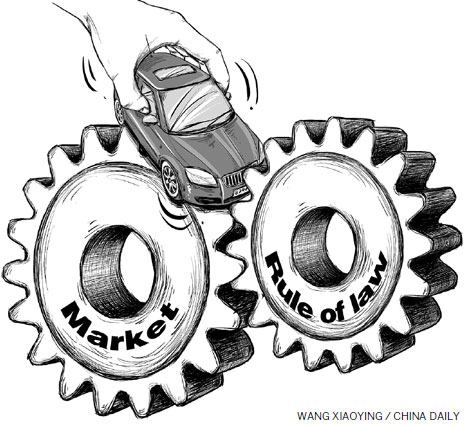
On March 25, Hangzhou introduced a car license plate lottery, making it the sixth city in China - the others being Shanghai, Beijing, Guangzhou, Guiyang and Tianjin - to put restrictions on car purchases.
In a society ruled by law, any policy that is going to affect the public must be carried out according to the law and based on fair procedures. The people that will be affected by the policy have the right to be informed and to be heard.
From the economic point of view, buying and selling a car is market behavior that should be determined by demand and supply. In light of the spirit of freedom of contract, the government is supposed to interfere as little as possible. Setting a quota on car license plates is a restriction of free trade and against market economy norms.
From the legal point of view, restricting the supply of license plates is an administrative act that is applied indiscriminately. All administrative acts by the government must meet four preconditions: they must be authorized by law, have legitimate justifications, conform to the principle of proportionality and have fair procedures.
No doubt, the purpose of restricting car license plates is to address the problem of traffic congestion, which has become a hard-to-cure ill for many cities. Take Hangzhou for example, the average traffic speed during rush hours is less than 20 kilometers per hour, the internationally accepted alarm level. Traffic jams hurt the public interests since they reduce transportation efficiency, pollute the air and have detrimental effects on people's livelihoods.
It's legitimate to call for solutions to these ills.
But the popular solution adopted by big cities in China is to cap the market demand by setting up a quota, which means that the government only releases a fixed number of car license plates to the market. Consumers are required to get a license plate before buying a car. And the common way to get a license plate is through public bidding such as in Shanghai or a lottery such as Beijing's, or, as Hangzhou has done, a combination of both.
